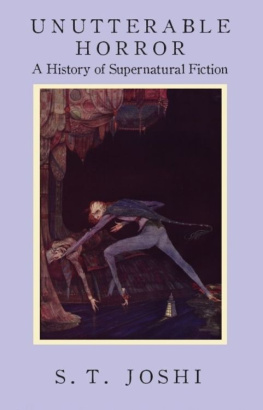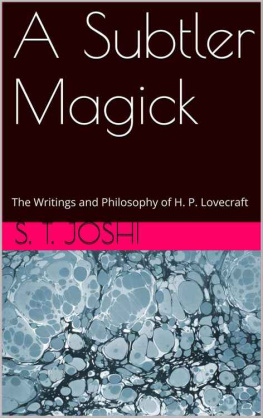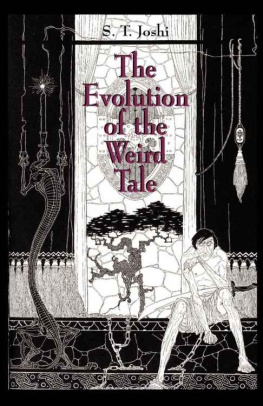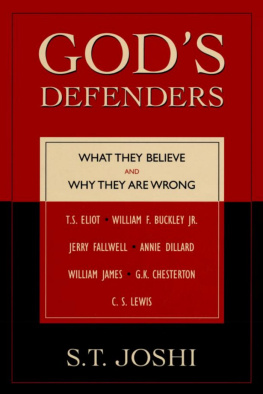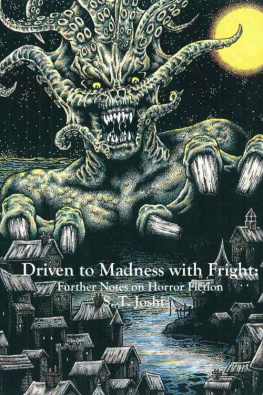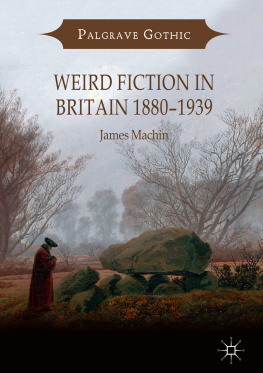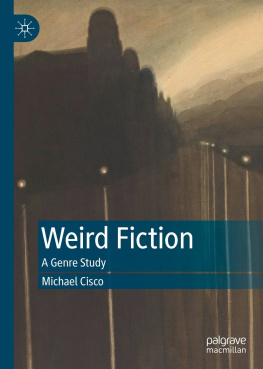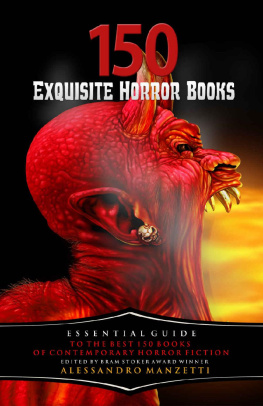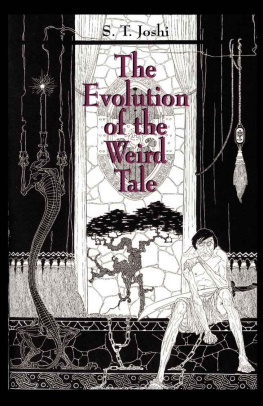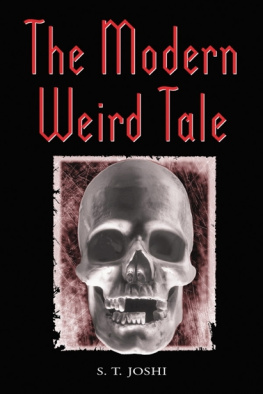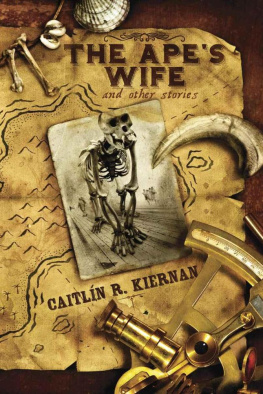S. T. Joshi - Unutterable Horror: A History of Supernatural Fiction
Here you can read online S. T. Joshi - Unutterable Horror: A History of Supernatural Fiction full text of the book (entire story) in english for free. Download pdf and epub, get meaning, cover and reviews about this ebook. year: 2015, publisher: Hippocampus Press, genre: Art. Description of the work, (preface) as well as reviews are available. Best literature library LitArk.com created for fans of good reading and offers a wide selection of genres:
Romance novel
Science fiction
Adventure
Detective
Science
History
Home and family
Prose
Art
Politics
Computer
Non-fiction
Religion
Business
Children
Humor
Choose a favorite category and find really read worthwhile books. Enjoy immersion in the world of imagination, feel the emotions of the characters or learn something new for yourself, make an fascinating discovery.
Unutterable Horror: A History of Supernatural Fiction: summary, description and annotation
We offer to read an annotation, description, summary or preface (depends on what the author of the book "Unutterable Horror: A History of Supernatural Fiction" wrote himself). If you haven't found the necessary information about the book — write in the comments, we will try to find it.
As Joshis landmark survey of supernatural literature begins, the focus is on weird fiction from the Epic of Gilgamesh (c. 1700 B.C.E.) to the end of the nineteenth century. Joshi focuses on key works of Greek and Latin literature that introduced many long-enduring motifs in weird literature. Moving on down through Dante, Shakespeare, Marlowe, and Milton, Joshi provides a compact overview of the several different strands of Gothic fiction, beginning with Horace Walpoles The Castle of Otranto (1764) and culminating with Charles Robert Maturins Melmoth the Wanderer (1820), with detailed discussions of Ann Radcliffe, M. G. Lewis, Mary Shelley, and others.
Edgar Allan Poe was a watershed in the history of weird fiction, and his fusion of psychological and supernatural horror was pioneering. He was followed by the prolific Irish writer J. Sheridan Le Fanu, numerous practitioners of the English ghost story (including Henry James and Edith Wharton), and the cynical Ambrose Bierce. Toward the end of the nineteenth century, Bram Stoker, Robert Louis Stevenson, Oscar Wilde, and others made weird fiction a genre that fused popular appeal with aesthetic richness.
As S. T. Joshis landmark history of supernatural fiction continues, the focus is placed on an incredible efflorescence of weird writing at the turn of the twentieth centurya period that many scholars have referred to as the Golden Age of weird fiction. Such figures as Arthur Machen, Lord Dunsany, Algernon Blackwood, M. R. James, and H. P. Lovecraft elevated weird fiction to a level of high artistry never seen before, and their work continues to inspire writers up to the present day. Other authors such as Walter de la Mare, L. P. Hartley, and William Hope Hodgson also contributed important novels and tales. Lovecrafts influence extended to such of his contemporaries and successors as Clark Ashton Smith, Robert E. Howard, August Derleth, Robert Bloch, and Fritz Leiber.
In the years following Lovecrafts death, a new crop of writersled by Ray Bradbury, Richard Matheson, Shirley Jackson, and Charles Beaumontbrought horror down to earth and into the realm of ordinary life. Their work laid the groundwork for the extraordinary emergence of weird fiction as a best-selling phenomenon in the work of Ira Levin, Stephen King, Peter Straub, Clive Barker, Anne Rice, and many others. At the same time, more literate figures such as Ramsey Campbell, T. E. D. Klein, and Thomas Ligotti continued to expand the boundaries of the weird in work of the highest literary polish. Today, such writers as Caitln R. Kiernan, Dennis Etchison, and many others continue to probe new directions in weird fiction.
S. T. Joshi: author's other books
Who wrote Unutterable Horror: A History of Supernatural Fiction? Find out the surname, the name of the author of the book and a list of all author's works by series.

